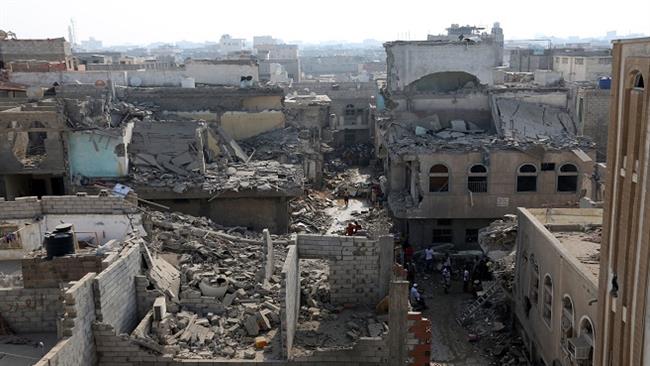
RNA - UN Secretary General Ban Ki-moon, in a statement released on Friday, condemned the September 21 attack that claimed the lives of 32 civilians and left scores more injured in Souq al-Hanoud area in the province's al-Hawak district.
Meanwhile, Cécile Pouilly, the spokesperson for the Office of the High Commissioner for Human Rights, also expressed “deep concern” over increasing attacks against civilian facilities in Yemen, noting that at least 41 attacks were carried out against non-military sites last month and 180 civilians lost their lives.
“We note with deep concern the sharp increase in civilian casualties since the suspension of peace talks,” she said in a statement, adding, "We reiterate our call for the setting up of an international and independent investigative body."
On Friday, at least three civilians, including a woman, lost their lives and several others sustained injuries when Saudi fighter jets struck al-Humaydat district in Yemen's northern province of al-Jawf.
Saudi fighter jets bombarded a residential building in the Razih district of Yemen’s mountainous northwestern province of Sa’ada, located about 240 kilometers north of the capital Sana'a, early on Thursday, leaving nine people dead. Another six civilians sustained injuries in the attack.
Informed source, speaking on condition of anonymity, said the deceased were seven children and two pregnant women.
Later in the day, Saudi aircraft pounded al-Hadab village in the Sirwah district of Yemen's central province of Ma'rib, though no reports about the possible casualties and the extent of damage caused were available.
Saudi Arabia has been incessantly pounding Yemen since March 2015, with the UN putting the death toll from the military aggression at about 10,000. The offensive was launched to reinstate Abd Rabbuh Mansur Hadi, a Saudi ally who has resigned as Yemen’s president.
UN Humanitarian Coordinator for Yemen Jamie McGoldrick said last month that the death toll from the Saudi military aggression could rise even further as some areas had no medical facilities, and that people were often buried without any official record being made.
111/847/C